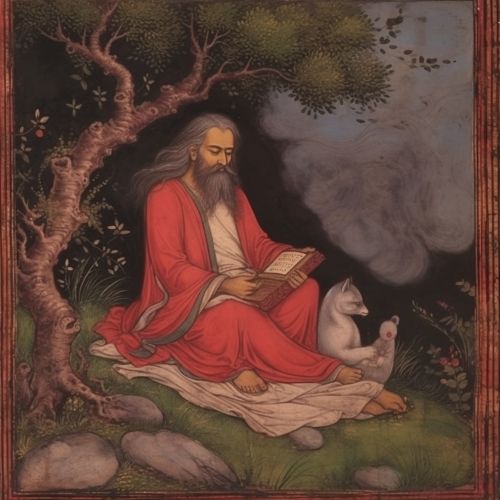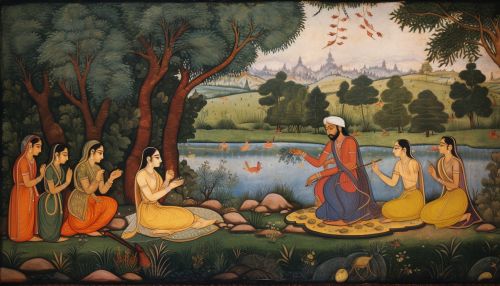Hindu philosophy
Introduction
Hindu philosophy refers to a group of darśanas (philosophical systems) that originated in the Indian subcontinent. These systems are traditionally classified into six orthodox schools (āstika) that believe in the authority of the Vedas, and three heterodox schools (nāstika) that reject the authority of the Vedas. The six orthodox schools are Nyaya, Vaisheshika, Samkhya, Yoga, Mimamsa, and Vedanta. The three heterodox schools are Jainism, Buddhism, and Charvaka.


Orthodox Schools
Nyaya
Nyaya, one of the six orthodox schools of Hindu philosophy, is primarily concerned with logic and epistemology. It is based on the Nyaya Sutras, attributed to Gautama, and its foundational text is the Tarka-Sangraha.
Vaisheshika
The Vaisheshika school of Hindu philosophy, founded by Kanada, is an atomist and pluralist system. It postulates that all objects in the physical universe are reducible to a finite number of atoms.
Samkhya
Samkhya is a dualist philosophical system that posits two fundamental realities: purusha (consciousness) and prakriti (matter). It is most related to the Yoga school.
Yoga
The Yoga school of Hindu philosophy is based on the Yoga Sutras of Patanjali. It shares many ideas with Samkhya but differs in that it accepts the concept of a personal god.
Mimamsa
Mimamsa, also known as Purva Mimamsa, is an orthodox school of Hindu philosophy that focuses on ritual action and exegesis of the Vedas.
Vedanta
Vedanta, also known as Uttara Mimamsa, is the last of the six orthodox schools of Hindu philosophy. It is primarily concerned with the interpretation of the Upanishads, and its various sub-schools offer different interpretations of the nature of reality and the self.
Heterodox Schools
Jainism
Jain philosophy, one of the three heterodox schools of Indian philosophy, rejects the authority of the Vedas and posits that the universe is eternal and uncreated.
Buddhism
Buddhist philosophy, another heterodox school, rejects the concept of a permanent self or soul and teaches the doctrine of dependent origination.
Charvaka
Charvaka, also known as Lokayata, is a materialist and atheistic school of Indian philosophy. It rejects the concepts of an afterlife, karma, and duty.
Conclusion
Hindu philosophy, with its diverse schools and systems, offers a rich tapestry of ideas on reality, knowledge, and ethics. It has had a profound influence on Indian culture and history, and continues to be a vital part of India's intellectual tradition.
